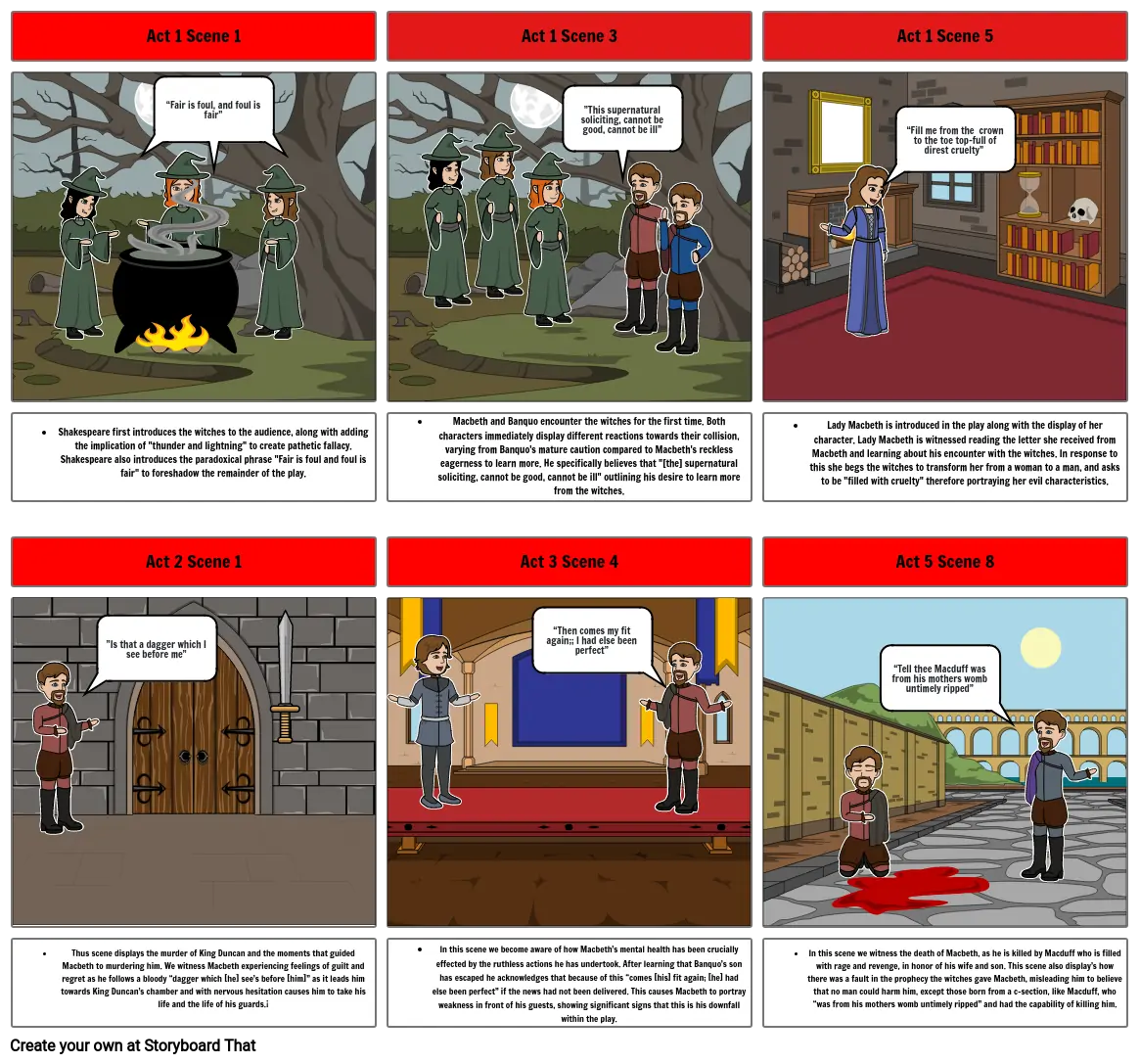Unknown Story

טקסט Storyboard
- Act 1 Scene 1
- “Fair is foul, and foul is fair”
- Act 1 Scene 3
- ”This supernatural soliciting, cannot be good, cannot be ill”
- Act 1 Scene 5
- “Fill me from the crown to the toe top-full of direst cruelty”
- Shakespeare first introduces the witches to the audience, along with adding the implication of "thunder and lightning" to create pathetic fallacy. Shakespeare also introduces the paradoxical phrase "Fair is foul and foul is fair" to foreshadow the remainder of the play.
- Act 2 Scene 1
- ”Is that a dagger which I see before me”
- Macbeth and Banquo encounter the witches for the first time. Both characters immediately display different reactions towards their collision, varying from Banquo's mature caution compared to Macbeth's reckless eagerness to learn more. He specifically believes that "[the] supernatural soliciting, cannot be good, cannot be ill" outlining his desire to learn more from the witches.
- Act 3 Scene 4
- “Then comes my fit again;; I had else been perfect”
- Lady Macbeth is introduced in the play along with the display of her character. Lady Macbeth is witnessed reading the letter she received from Macbeth and learning about his encounter with the witches. In response to this she begs the witches to transform her from a woman to a man, and asks to be "filled with cruelty" therefore portraying her evil characteristics.
- Act 5 Scene 8
- “Tell thee Macduff was from his mothers womb untimely ripped”
- Thus scene displays the murder of King Duncan and the moments that guided Macbeth to murdering him. We witness Macbeth experiencing feelings of guilt and regret as he follows a bloody “dagger which [he] see’s before [him]” as it leads him towards King Duncan’s chamber and with nervous hesitation causes him to take his life and the life of his guards.¡
- In this scene we become aware of how Macbeth’s mental health has been crucially effected by the ruthless actions he has undertook. After learning that Banquo’s son has escaped he acknowledges that because of this “comes [his] fit again; [he] had else been perfect” if the news had not been delivered. This causes Macbeth to portray weakness in front of his guests, showing significant signs that this is his downfall within the play.
- In this scene we witness the death of Macbeth, as he is killed by Macduff who is filled with rage and revenge, in honor of his wife and son. This scene also display’s how there was a fault in the prophecy the witches gave Macbeth, misleading him to believe that no man could harm him, except those born from a c-section, like Macduff, who “was from his mothers womb untimely ripped” and had the capability of killing him.
נוצרו מעל 30 מיליון לוחות סיפור

